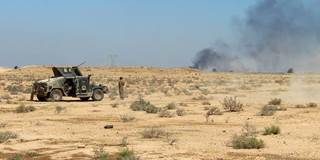The jihadist threat the world is facing is the fourth in a series of increasingly perilous waves. If we are to avoid creating an even more powerful fifth wave, it is imperative that we learn from the mistakes we made in seeking to counter the previous three.
STOCKHOLM – Muscular language has become increasingly prevalent in the debate about how to counter the threat of jihadist terrorism. Television talk-show hosts speculate about when control of Raqqa in Syria or Mosul in Iraq might be wrested from the Islamic State (ISIS), implying that these cities’ liberation will mark, at the very least, the beginning of the end of the problem. And in December, Ted Cruz, a Republican contender in the US presidential race, went so far as to raise the specter of nuclear strikes: “I don’t know if sand can glow in the dark, but we’re going to find out,” he said.

STOCKHOLM – Muscular language has become increasingly prevalent in the debate about how to counter the threat of jihadist terrorism. Television talk-show hosts speculate about when control of Raqqa in Syria or Mosul in Iraq might be wrested from the Islamic State (ISIS), implying that these cities’ liberation will mark, at the very least, the beginning of the end of the problem. And in December, Ted Cruz, a Republican contender in the US presidential race, went so far as to raise the specter of nuclear strikes: “I don’t know if sand can glow in the dark, but we’re going to find out,” he said.